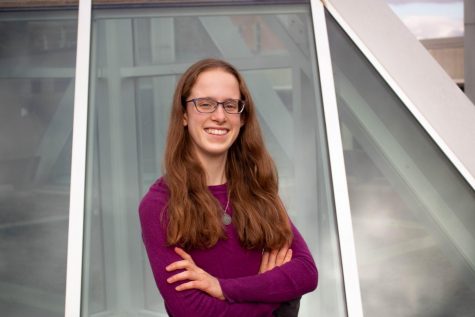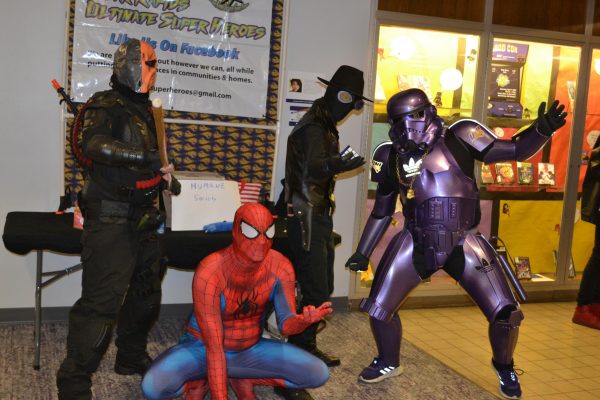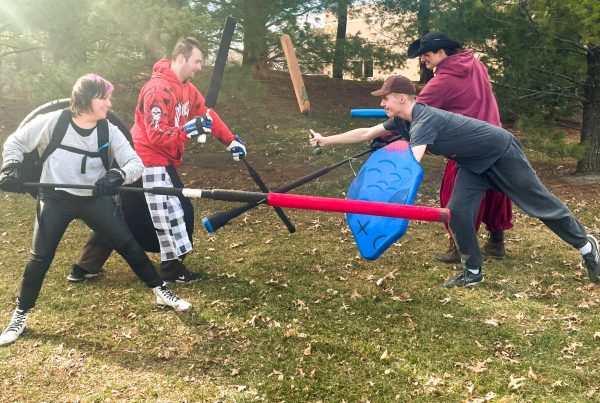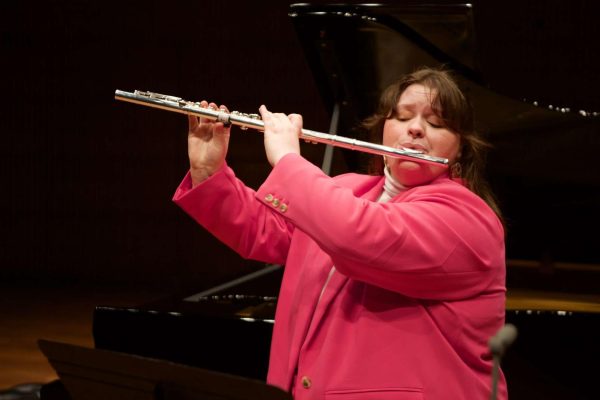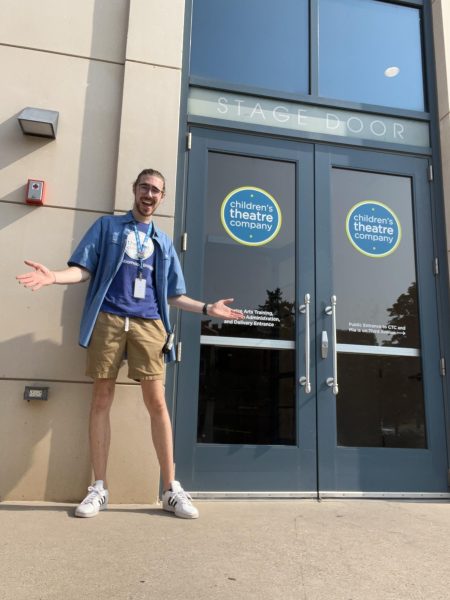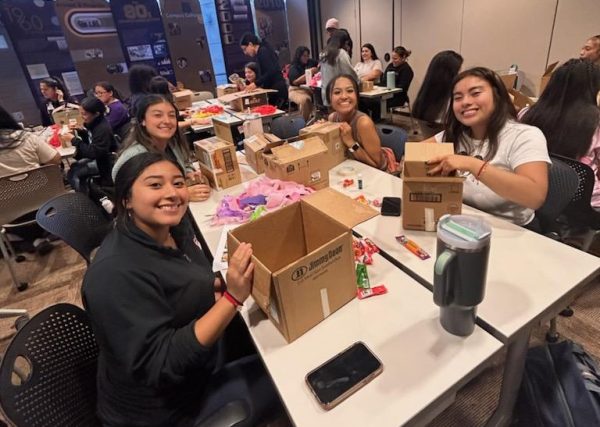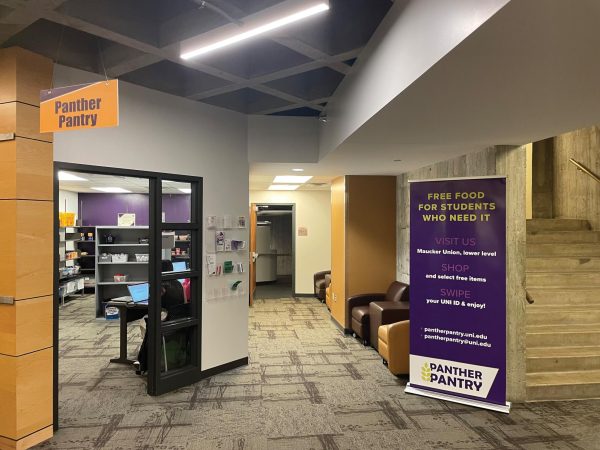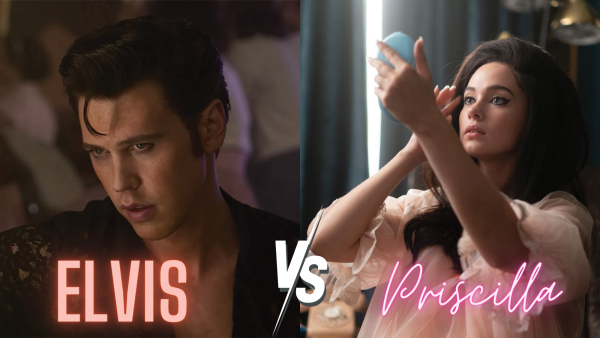UNI visual and performing arts students adjust to COVID-19
Apr 7, 2020
As the world is reeling from the widespread closures brought on by the COVID-19 pandemic, one of the many hard-hit industries is the visual and performing arts. In a business that depends on in-person collaboration, artists worldwide have struggled to continue their craft in a world of social distancing.
UNI arts students are experiencing the same stresses and disappointments. Here, students from the UNI art, music, theatre and dance departments share how their programs are responding to COVID-19.
Performances canceled
An important aspect of a student in the arts’s education is the opportunity to perform or exhibit one’s work— an opportunity which was suddenly taken away due to the restrictions on large groups of people in an effort to stop the spread of COVID-19.
“I was one of several people that had their senior recitals canceled on them,” said Michael Stow, a fifth-year music education major. “It’s supposed to be one of the biggest culminating events of a music major’s career in college. It’s what I’ve been building toward since day one in terms of individual musicianship.”
Sam Barnhart, a fifth-year majoring in studio art, experienced a similar struggle with the cancellation of his BFA exhibition. He said that the department may be able to convert senior exhibitions into some type of virtual gallery or presentation, but nothing can compare to the in-person experience.
“Having this BFA exhibition is kind of a big thing that I’ve worked on for a long time, and having that experience of being able to show my work [and] learning how to set up an exhibition, how impactful that could be for my career, is thrown out the window,” he said. “That experience is just gone, and it’s hard to find any light in that right now.”
TheatreUNI’s production of “You Can’t Take it With You” got in three performances before COVID-19 restrictions forced the cancellation of the rest of the production’s run. Cast member Hannah Twitchell, a senior theatre performance major, said the cast was sad but grateful to have had those performances, especially since the department’s final production of the semester, “Romeo and Juliet,” won’t get to perform this spring at all.
“They don’t get to have an opening this semester, and that really affected the morale of the whole department and every theatre student,” Twitchell said. “We’ve seen not only our shows close but other performances at GBPAC and around the country in places that we want to work or are going to work [be canceled].”
“Romeo and Juliet,” scheduled to open April 15, has now been postponed to fall 2020, as the first show of the department’s 2020-2021 season. Fortunately, most of the same cast will be able to return. Postponement until fall is also the goal for the UNI Student Theatre Association (UNISTA) production of “A Very Potter Musical,” which was scheduled for April 23-25.
The UNI Orchesis Dance Company annual Spring Gala, scheduled for April 3-4, has also been postponed until further notice.
“I was heartbroken,” said Mel Lemke, a first-year graduate student in health education who has been a member of Orchesis for over five years. “The Spring Gala always holds a special place in my heart that I cannot even describe. It’s a memorable time for the dancers and something I have been longing to experience with my current company members. I really hope we will have our opportunity to still perform because it would be a shame to never see this show step out on the stage.”
Acclimating to online classes
In addition to the cancellation of performances and exhibitions, students in the arts are facing special struggles with online classes. Some classes such as art history, music theory and dramaturgy classes can transition to an online format, but most ensembles and performance-based or collaborative classes have virtually come to a standstill.
“A lot of what I would consider the essential functions of the School of Music have had to be shut down or drastically altered to fit the online format,” Stow said. “There’s really no way that you can have a music rehearsal through an Internet connection—it doesn’t matter if it’s two people trying to play at the same time or fifty.”
Twitchell agreed, saying it’s been hard for theatre students to conduct acting technique classes or learn accents remotely.
“A lot of our classes are very physical, in-class things,” she said. “One of our studio classes is taught by Jim Bray, who teaches the Meisner approach, which has a lot to do with identifying the behavior of your scene partner and being emotionally invested [with them]. Adjusting to doing Meisner over a Zoom has been difficult.”
Even visual art majors like Barnhart, who can continue their work individually, are facing challenges. Barnhart said the art department gave students a heads-up before the campus closure so they had time to collect their projects and materials, but working from home is easier said than done.
“I work in metal and wood, but that’s almost completely not possible at home,” he said. “The only thing I’ve really been able to do is [to] make sketches [or] computer aided drafting models. For painting, I’ve done bigger paintings lately, but having a smaller apartment, it’s hard for me to find the space […] and I have to be conscious of the chemicals being in a confined space.”
“Classes being moved online has been interesting, to say the least, for both students and faculty,” Lemke said. “This whole pandemic makes me really appreciate the opportunity to have class face to face.”
“It’s hard to be motivated”
With no performances to look forward to and no way to connect in person with their classmates and professors, students in the arts are struggling to stay motivated and positive.
“I’m getting credit as long as I stick to it, but I know I’m not benefiting from it nearly as much as I would if I could go to the studio,” Barnhart said. “To not be able to have [the] equipment and have the things that I need to make my art, it’s hard to be motivated or even see a point in it.”
“I was very much looking forward to a lot of these things that have been canceled or taken away, so it’s hard to get motivated to practice when [my] senior recital is not happening,” Stow agreed.
Motivation aside, it’s hard for them to even know where to begin with some of their collaborative and performance driven works. Twitchell is taking an independent study course where she and a classmate are writing a musical that they were hoping to have performed in some capacity at the end of the semester. Now that that’s an impossibility, she said the creative process has ground to a halt.
“I haven’t done any work on it because it feels so abstract to even think about, because the concept of what’s real, nothing quite feels real anymore,” Twitchell said. “Theatre becomes concrete through performances, and even conceptualizing what’s tangible and what’s real is hard now.”
Learning to adapt
As the pandemic continues, the students are adjusting as best they can and trying to use their art to help themselves, and others, heal.
“It’s not something we can fix in the same way that we could come together and do a performance and fundraise for something,” Twitchell said, citing the common tendency of theatre performers to host benefit shows to combat crises. “This isn’t something we can all come together physically and put on a show to fix, so that was a hard reality to come to terms with.”
Technology has been instrumental in helping students like Stow come to terms with that reality.
“I’ve noticed in general a lot more music being shared on the Internet and social media,” he said. “People are posting a lot more things online of them just playing music.”
Across the nation and the world, musicians and artists have hosted innovative virtual shows from their basements and living rooms, finding ways to share their art with the world.
“We’ve learned to adapt how to consume, make and share the experience in art,” Barnhart said. “For me, [art] helps me work through things and I hope for other people, it can at least cheer them up and better process what’s going on.”
Still, art can’t always be a quick fix, Twitchell said.
“I see a lot of things [on social media] encouraging creating art individually, like writing a play or writing a song, but even that’s been really hard to do because [I can’t] force myself to create to feel something,” Twitchell said. “We can’t just ‘art our way out’ of feeling stuck or feeling distant from others.”
For now, however, students in the arts and professionals are making the best of a bad situation—and looking forward to the day they can come together again in the studio, the theatre and the practice room.
“Even if things are canceled now, we are willing to go forth with plans and hope that things will clear up in a month, or two months, or however long it takes, and [we’ll] be willing to adjust schedules and do what’s needed to make it happen,” Twitchell said.


